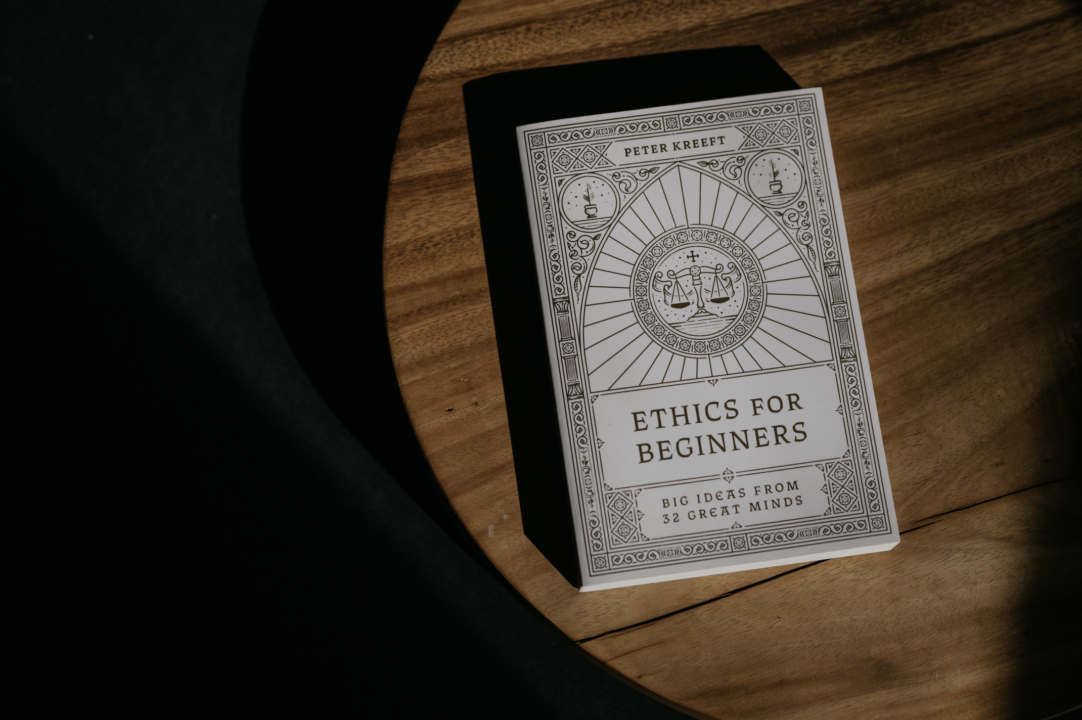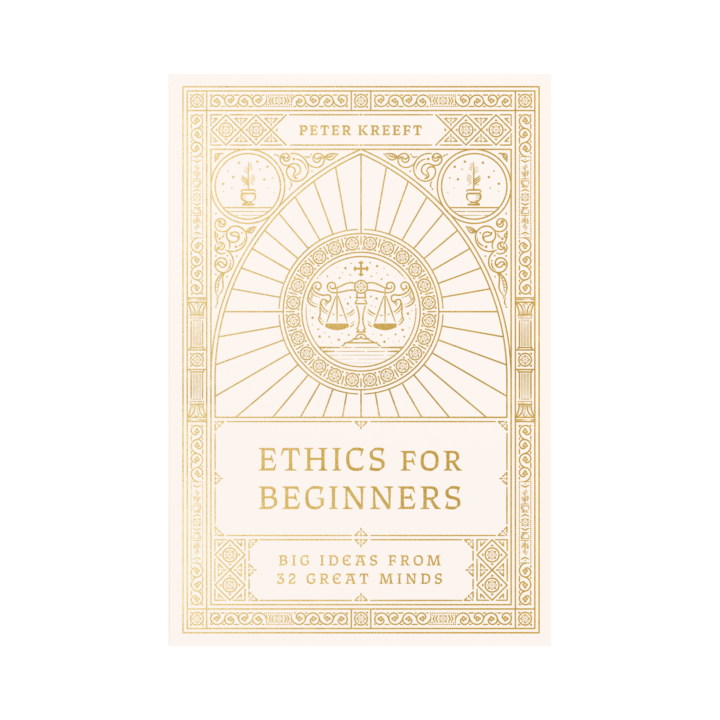Celebrated philosopher Peter Kreeft reclaims the importance of ethical study by answering life’s big questions: What is the meaning of life? How should I live? How should I treat other people?
The following is an excerpt from Chapter 18, “Niccolò Machiavelli (AD 1469-1527): The Separation between Ethics and Politics” in Ethics for Beginners by Peter Kreeft.

Machiavelli effectively put an end to the application of ethics to politics. Not all of his successors agree with him; in fact, all of them try to modify his scandalous radicalism in some way. Yet almost all of them, to some degree, agree with the essential Machiavellian revolution. Politics is now “the art of the possible,” not the ideal.
Machiavelli is not only “the founder of modern political philosophy” (according to Leo Strauss) but also the most famous example of the assumption that ethics is not about objective reality but about mere “ideals” or “values”—i.e., the assumption that ethics (which is about what is good) is not based on metaphysics (which is about what is real). In other words, the modern assumption is that Plato is wrong about his most fundamental assertion, that the ultimate reality is “the Good.” If Plato is wrong about that, then we have to choose between ethical “ideals” and the “real world”; we have to choose between ethics and “realpolitik,” which means asking first of all what works rather than what is morally good.
There are various ways to summarize this Machiavellian point. One is that “the end justifies the means.” Machiavelli did not write those words, but they reflect his main point: that there are no absolute or ultimate ends or goods but only instrumental, practical, utilitarian goods; that Plato and all the premodern ethical philosophers (except the Sophists) were merely dreaming when they spoke of “the Good” or “Justice” as a thing in itself. Justice is whatever those in power say it is; therefore power, not justice, is the absolute in human life. Justice, or goodness, may be the absolute ideal for “dreamy” philosophers like Plato, but it is not the absolute reality.
Justice is whatever those in power say it is . . .
This is an implicit metaphysics: that objective reality does not include an ethical dimension; that the only real world is the visible world inside Plato’s “cave,” not the invisible world outside it. Obviously, this implies atheism, though Machiavelli could not afford to be honest enough to admit that, since he lived in a time when atheists were not tolerated. But ordinary people knew it and called Machiavelli “the devil’s son.” The English name for the devil, “Old Nick,” comes from Machiavelli’s first name, Niccolò. Machiavelli divides all the forces in human life into two, which he calls virtu (strength, power, effectiveness, all the things that are under your control) and fortuna (chance, luck, all the things not under your control); and his formula for success is the conquest of fortuna by virtu, or at least the maximization of virtu and the minimization of fortuna. The formula reduces life to a science.
And since other people are part of your fortuna, it is important to put them under the category of your virtu to control them. This is done by fear and force, not love and trust; for “it is much safer to be feared than loved, for men will fear you when you will, but they will love you when they will.” Another corollary of the same principle about virtu and fortuna is that “armed prophets succeed, unarmed prophets fail.”
The refutation of this apparently very logical philosophy is simply the empirical facts of life and history. Individual lives and political regimes based on fear have proved fragile; tyrants and “armed prophets” always fail, while it is the “unarmed prophets” like Socrates, Jesus, and Buddha whose lives are happy and whose regimes last. Machiavelli’s principles simply do not explain the empirical facts. It is him whom the facts of history and life have proved to be the starry-eyed idealist and ideologist, and it is the traditional moralist whom the facts have proved to be the commonsense realist and the successful entrepreneur at the business of life, in the long run.

Surveying the “big ideas” of the thirty-two most important ethical philosophers, this book is an apprenticeship to the greatest minds in history. You can get your own copy of Ethics for Beginners by Peter Kreeft in the Word on Fire Bookstore.
